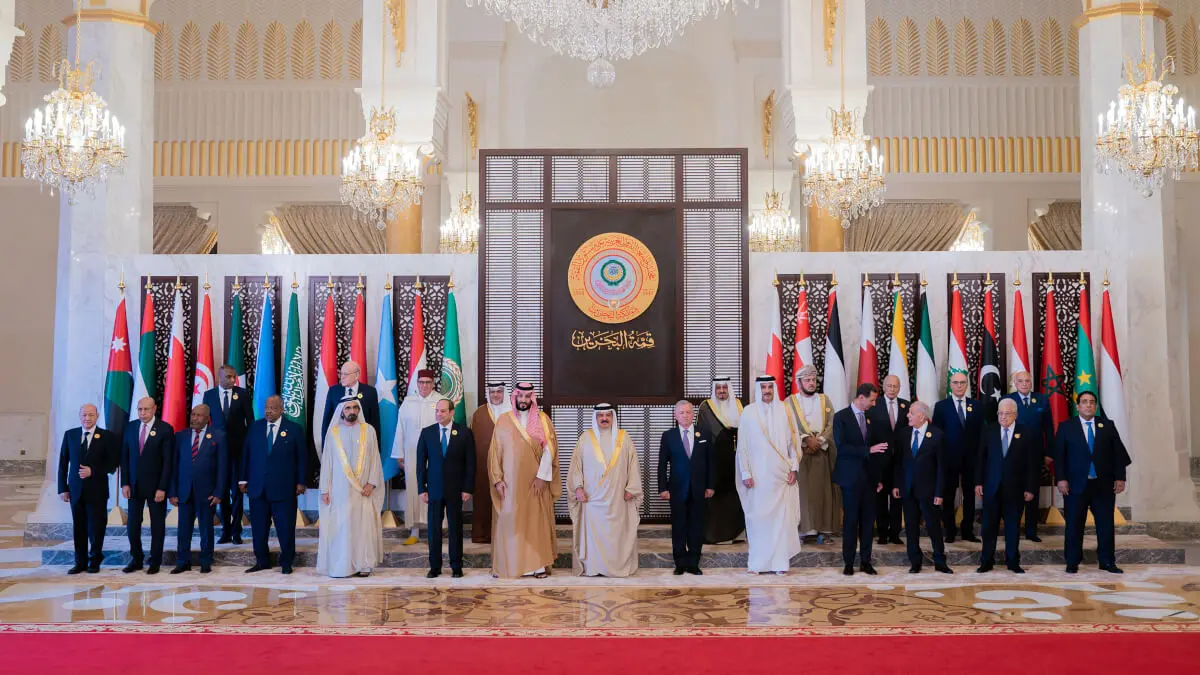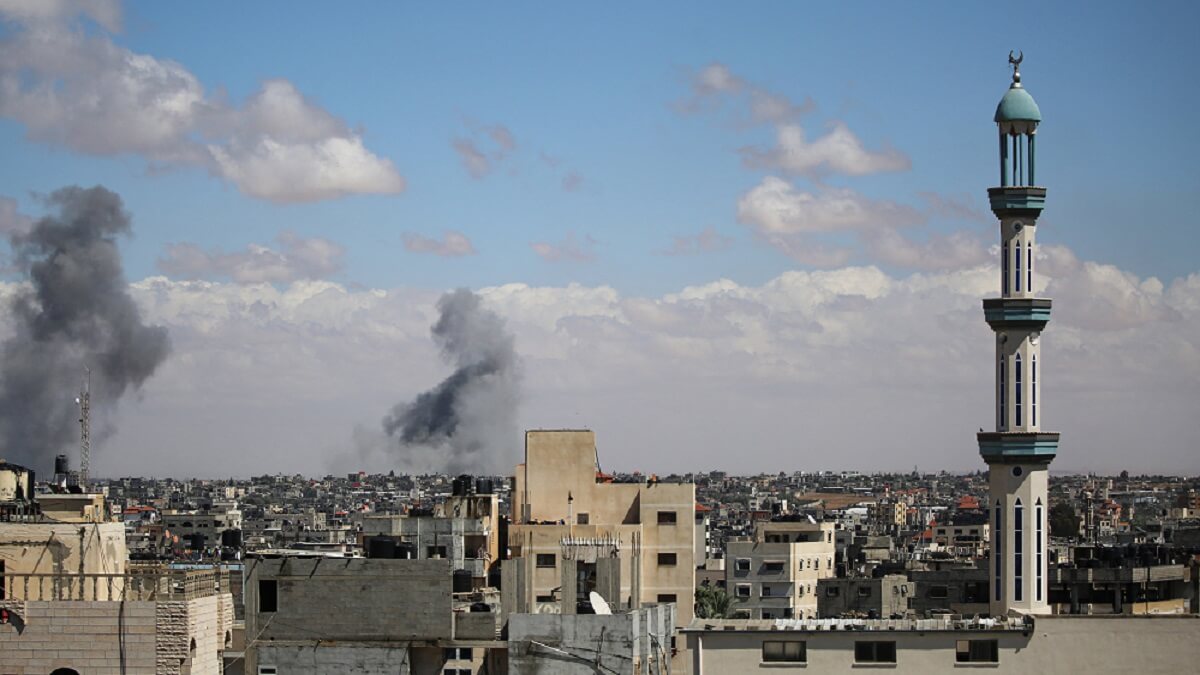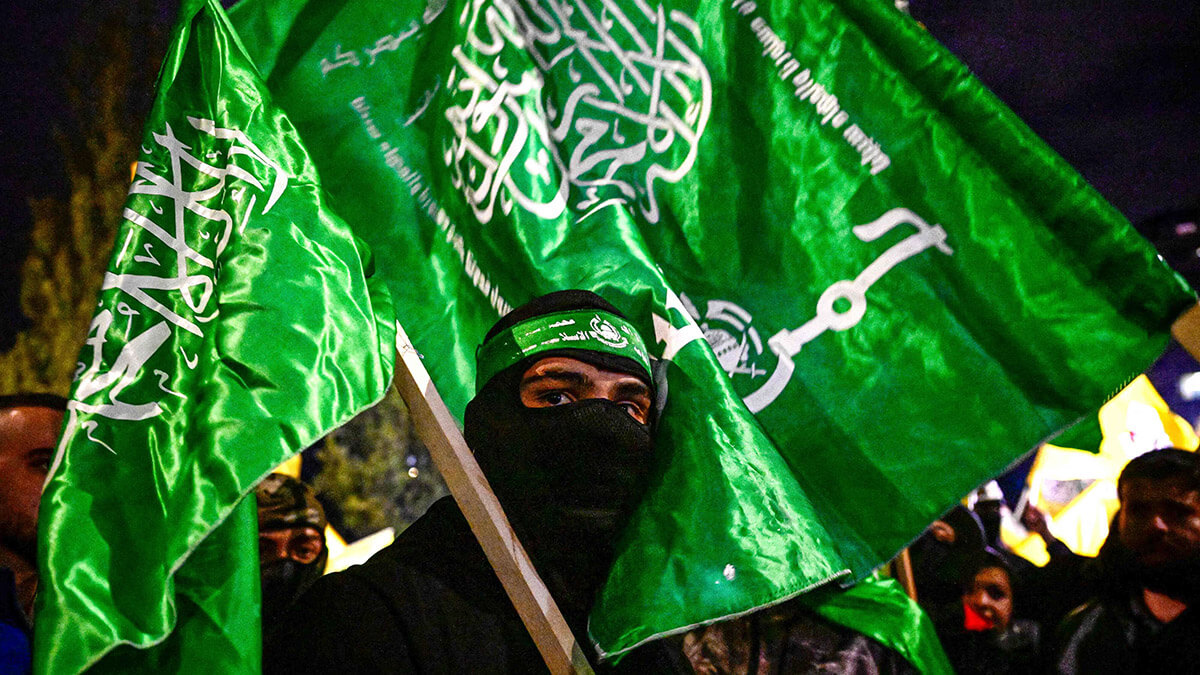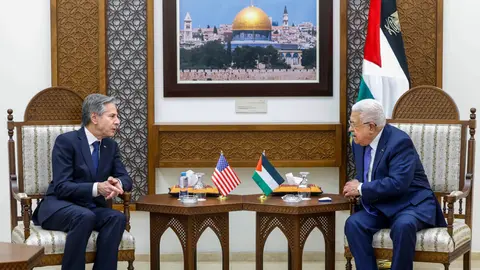Arab League calls on UN to deploy peacekeepers in Palestinian territories

- Arab League stands with Fatah
- Netanyahu rejects Palestinian statehood plan, calling it a "reward" for 7 October
As expected, the war between Israel and Hamas was the main topic of the recent Arab League summit in Manama. In the Bahraini capital, Arab leaders called for "international protection and UN peacekeeping forces in the occupied Palestinian territories" until a two-state solution is implemented, as stated in the declaration issued at the end of the meeting by the 22 members.
The Arab League also used the summit to insist once again on an "immediate and permanent" ceasefire in the Gaza Strip, as well as "the cessation of all attempts at forced displacement, an end to all forms of siege and full and sustainable access to aid".
In addition to the situation in Gaza, the Arab leaders also mentioned the volatile regional and international situation due to attacks by Iranian-backed Houthi rebels in Yemen.
The members "strongly condemned the attacks on commercial vessels", saying they "threaten freedom of navigation, international trade and the interests of the countries and peoples of the world", reiterating the Arab League's commitment to "guarantee freedom of navigation in and around the Red Sea region".
The summit, opened by Bahrain's King Hamad bin Isa Al-Khalifa, was held to call for an international conference for peace in the Middle East and to push for the creation of a Palestinian state. It is the second to be held after November's conference in Riyadh, where the bloc condemned Israel's military operation in Gaza.

The monarch, as host of the summit, also reaffirmed his country's support for full recognition of a Palestinian state and acceptance of its membership in the United Nations. According to the king, the establishment of a Palestinian state will have "positive" repercussions in the region.
Last week, the UN General Assembly endorsed the Palestinian bid for full UN membership and called on the UN Security Council to reconsider the application. "What the Palestinians face requires a unified international stance," declared Bahrain's king.
UN General Assembly determines that the State of Palestine is qualified and should be admitted as a member to the United Nations.
— United Nations (@UN) May 10, 2024
UNGA further recommends that the Security Council reconsider the matter.https://t.co/xWc4QO8ruV pic.twitter.com/6dEl4ps8pp
For his part, Saudi Crown Prince Mohammed bin Salman highlighted during his speech the Kingdom's efforts to alleviate the humanitarian crisis in Gaza, reiterating Riyadh's support for issues in the Arab world. He also urged the international community to support ceasefire efforts and stop the aggression against Palestinian civilians.
Saudi Crown Prince Mohammed bin Salman meets UN Chief Guterres, Syria’s President Assad on the sidelines of Arab League Summit in Bahrain.#ArabLeague #Bahrain
— Al Arabiya English (@AlArabiya_Eng) May 17, 2024
Read more: https://t.co/RK9r9oxAVV pic.twitter.com/IvWYPiRCjB
Arab League stands with Fatah
In addition to unity around the Palestinian state, Arab leaders also agreed that the Palestine Liberation Organisation - represented by the ruling Fatah movement in the West Bank - is "the sole legitimate representative of the Palestinian people".
The Arab League has therefore urged "all Palestinian factions to unite under the umbrella of the Palestine Liberation Organisation", reiterating its rejection of a Hamas government. The US has also raised the possibility of Fatah rule in Gaza once the war in the enclave is over.
Palestinian President Mahmoud Abbas has again criticised the terrorist organisation for giving Israel the "pretext to attack" Gaza after the brutal attack on 7 October.
"Hamas's refusal to end the division serves Israel's interest in ending the two-state solution," he said, recalling the historic tensions between the Palestinian Authority and Hamas.

Abbas lamented that the Palestinian government has not received the financial support it expected from international and regional partners, accusing Israel of "withholding funds and creating a terrible situation". The Palestinian leader called for support from Arab countries and the US to put pressure on Israel to release the funds.
"It has now become essential to activate the Arab security network, increase the resilience of our people and enable the government to fulfil its duties," added Abbas, who also urged the international community to start immediately with the implementation of the two-state solution.

Netanyahu rejects Palestinian statehood plan, calling it a "reward" for 7 October
Despite widespread support for a Palestinian state in the international community, Israel has repeatedly expressed its rejection of the plan, which it sees as a "reward for the terrible massacre of 7 October", as Prime Minister Benjamin Netanyahu put it after the UN resolution on the recognition of a Palestinian nation.
Netanyahu, based on a poll published months after 7 October, recalled that the majority of the population in the West Bank - where Fatah rules - supports Hamas, even after the attacks on the Israeli population and the subsequent war provoked by this invasion.
Prime Minister Netanyahu:
— Prime Minister of Israel (@IsraeliPM) May 15, 2024
"We will not reward the terrible massacre of October 7, which 80% of Palestinians, both in Judea and Samaria, and Gaza, support.
We will not allow them to establish a terrorist state from which they will be able to vigorously attack us.
This is one of the reasons why the Abbas government in the West Bank has not held elections for the past 18 years. In Ramallah, they are aware of the lack of popular support among Palestinians, who are dissatisfied with their policy of security cooperation with Israel, as well as the lack of opportunities and corruption.
As a result, 90% of Palestinians believe that Abbas should step down, while 57% of respondents in Gaza and 82% in the West Bank believe that Hamas did the right thing in launching the 7 October attack, despite the subsequent destruction in Gaza.

For this reason, in Israel it is not only Netanyahu who opposes the establishment of a Palestinian state. Regardless of ideology and political party, the vast majority believe that the time is not right to push this plan forward.
This isn’t just Netanyahu’s opinion.
— Eylon Levy (@EylonALevy) May 15, 2024
Palestinians must not be allowed to treat October 7 as their Independence Day. The world must not send them the message that gang rape works. They must not look back at 10/7 as a moment that propelled their cause forward. https://t.co/0lXA5vhz3H
"The Palestinians should not be allowed to consider 7 October as their Independence Day. The world must not send them the message that gang rape works (referring to the numerous sexual assaults by Hamas). They should not remember 7 October as a moment that advanced their cause," Eylon Levy, a former Israeli government spokesperson, said on social media.











